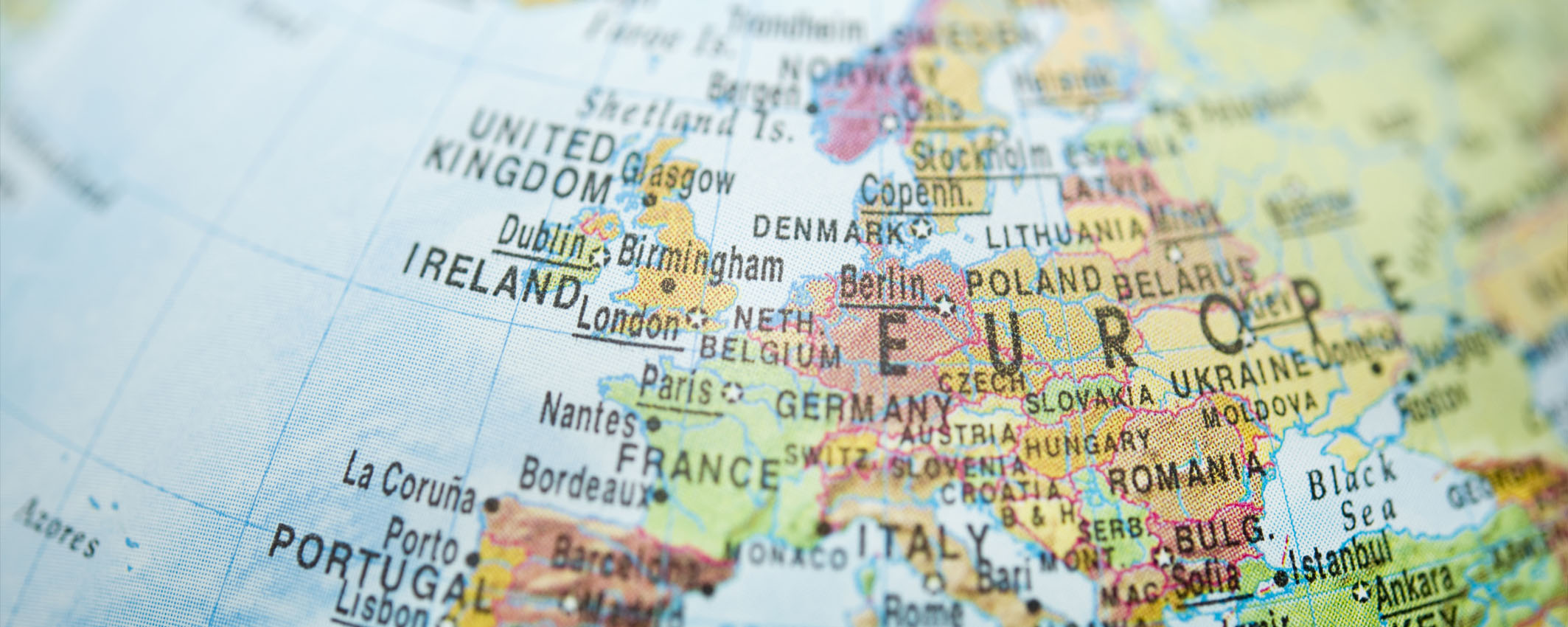 |
CCGL9050 Global IssuesEurope without Borders?This course is under the thematic cluster of:
|
Course Description
Europe has decisively shaped the modern world and has been in turn influenced by the global forces it unleashed. The very process of globalization, in fact, can be traced back to eighteenth century enlightened thinkers who dared to think large: imagining one world and one humanity. Yet, we still live in a world of sovereign nation states. States, their borders, and nations themselves are relatively recent inventions and borders have been as often sources of conflict as they have served the aim of maintaining peace and political stability. Yet, in an intensely globalized world, boundaries today may well seem like a relic of the past. To the extent that Europe embodies and cherishes the ideal of “one world,” it appears hypocritical for it, for example, to block off migrants through impenetrable walls and barbed-wired fences. Such policies, cosmopolitans argue, are fundamentally unjust and incompatible with the values that Europe is meant to represent: democracy and freedom.
The course’s ultimate focus is on the function and status of national and European borders and the question of what it means to belong to a political community: who is in, who is out? How and why are people included or excluded? And, what, finally, is the future of a borderless Europe?

Course Learning Outcomes
On completing the course, students will be able to:
- Describe and explain key political terms and concepts such as citizenship, democracy, human rights, nationalism, cosmopolitanism and supranational governance.
- Understand key historical events and processes that led to the emergence of the current state-system and its limitations.
- Use relevant knowledge of contemporary European politics to examine competing arguments in favour of nation-state as the most important unit of political organization.
- Apply their understanding of political philosophy to advance reasoned arguments in favour, or against borderless Europe.
- Analyze the crisis of the European project and its implications for the wider world and the ideal of cosmopolitan citizenship.
Offer Semester and Day of Teaching
Second semester (Wed)
Study Load
| Activities | Number of hours |
| Lectures | 24 |
| Tutorials | 12 |
| Reading / Self-study | 46 |
| Assessment: Negotiations simulation | 10 |
| Assessment: Written paper | 34 |
| Total: | 126 |
Assessment: 100% coursework
| Assessment Tasks | Weighting |
| Reading responses | 25 |
| Lecture and tutorial presentation and participation | 20 |
| Simulation | 15 |
| Written paper | 40 |
Required Reading
- Auer, S. (2022). European Disunion: Democracy, Sovereignty and the Politics of Emergency. London: Hurst / New York: Oxford University Press.
- Auer, S. (2022, June 2). Ukraine’s fight for freedom exposes ‘sovereign Europe’ as a delusion. Financial Times.
- Carens, J. (2015, June 5). The case for open borders. Open Democracy. From https://www.opendemocracy.net/beyondslavery/joseph-h-carens/case-for-open-borders
- Darnton, R. (2002, February 28). Euro state of mind. The New York Review of Books. [pp. 30-32]
- Furet, F. (1990). From 1789 to 1917 & 1989: Looking back at revolutionary traditions. Encounter. [pp. 3-7]
- Garton Ash, T. (2023). Homelands: A personal history of Europe. New Haven and London: Yale University Press.
- Garton Ash, T. (2024, June 10). Wake up! After these elections, Europe is again in danger. The Guardian. From https://www.theguardian.com/commentisfree/article/2024/jun/10/elections-europe-danger-eu-ukraine
- Kant, I. (1998). Idea for a universal history from a cosmopolitan point of view. In J. Rundell & S. Mennell (Eds.), Classical readings in culture and civilization (pp. 39-47). London: Routledge.
- Mill, J. S. (1991). On nationality. On liberty and other essays. Oxford: Oxford University Press. [pp. 427-434]
- Muller, J. Z. (2008). Us and them: The enduring power of ethnic nationalism. Foreign Affairs, 87(2), 18-35.
- Rachman, G. (2022, April 19). Patriots vs globalists is the new battlefield. Financial Times.
- Scicluna, N., & Auer, S. (2022, June 15). The EU’s future lies in its east. Politico. From https://www.politico.eu/article/eu-future-east/
- Scicluna, N., & Auer, S. (2023). Pushing the EU’s Boundaries: Enlargement and Foreign Policy Actorness after the Russian Invasion of Ukraine. Journal of Common Market Studies, 61(S1), 45-56. From https://doi.org/10.1111/jcms.13540
- Snyder, T. (2022, June 27). Germans have been involved in the war, chiefly on the wrong side. Frankfurter Allgemeine Zeitung. From https://www.faz.net/aktuell/politik/ausland/juergen-habermas-and-ukraine-germans-have-been-involved-in-the-war-18131718.html
- Stonebridge, L. (2015). No place like home: A concise history of statelessness. New Humanist, 4. From http://www.eurozine.com
- Žižek, S. (2022, June 21). Pacifism is the wrong response to the war in Ukraine. The Guardian. From https://www.theguardian.com/commentisfree/2022/jun/21/pacificsm-is-the-wrong-response-to-the-war-in-ukraine
Course Co-ordinator and Teacher(s)
| Course Co-ordinator | Contact |
| Professor S. Auer School of Modern Languages and Cultures (European Studies), Faculty of Arts |
Tel: 3917 2911 Email: stefauer@hku.hk |
| Teacher(s) | Contact |
| Professor S. Auer School of Modern Languages and Cultures (European Studies), Faculty of Arts |
Tel: 3917 2911 Email: stefauer@hku.hk |

